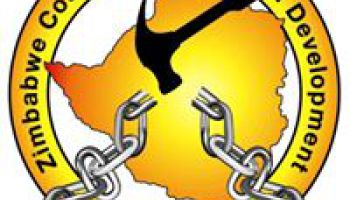Zimcodd sets dates for annual debt conference
THE Zimbabwe Coalition on Debt and Development (Zimcodd) will host its sixth Annual Zimbabwe Debt Conference from August 22 to 23 to discuss ways on dealing with the country’s burgeoning debt.
According to official Treasury statistics, public debt grew to nearly US$21 billion as of the end of June from about US$17,7 billion as of September 2023.
However, these public debt figures have widely been disputed as some creditors noted that debt had reached US$21,2 billion at the end of last year.
“Zimcodd will host the sixth Annual Zimbabwe Debt Conference from August 22 to 23, under the theme, Embracing Inclusive Debt Management for a Sustainable Upper Middle Class Economy (Vision 2030). This year’s instalment comes within a context of a continually growing debt burden, ballooning from US$17 billion to US$21 billion between September 2023 and July 2024,” Zimcodd said in a statement.
“The current status shows a lack of transparency and accountability on contraction of this burden, validating the theme for inclusivity in all public debt conversations, including government, citizens, civil society and lenders.
“The structured dialogue platform now becomes more critical if the economic results of unsustainable debt are to be curtailed.”
Zimcodd said reforms suggested governance and economic levels should not be taken at face value, but sincerely implemented for visible transformation.
The country’s lead debt negotiator, the African Development Bank, recently revealed that Zimbabwe faces an annual financing gap of US$3,7 billion which will affect its march towards an upper-middle income status by 2030.
The annual debt conference is a multi-stakeholder event involving civil society, government and citizens meant to tackle the growing debt.
“According to the Africa Development Bank, Zimbabwe’s unsustainable debt burden posed a significant obstacle to achievement of key development projects such as the National Development Strategy. Debt in itself is not inherently detrimental to development, but a fundamental aspect of financing social and economic projects that government undertakes,” Zimcodd said.
“Government can borrow to invest in productive sectors such as mining, agriculture or social security supporting the most vulnerable of our society.
“However, the problem begins when it is odious or averse to transparency and accountability. In the Zimbabwean case, government lending schemes have been affected by corruption as politically connected elites have been able to access loans without repaying.”
Zimcodd said this burden was then passed to the citizens, who are forced to repay through increased taxation regimes.
“Further, central government had been adopting the debts of underperforming parastatals which are also benefiting a few individuals,” the debt watchdog body said.
Topics to be discussed at the conference include trends on the global debt landscape, Zimbabwe’s structured dialogue platform on debt resolution, Auditor General’s reports, linkages between economic reform and debt sustainability, debt and climate financing and debt and the private sector.-newsda











